December 16, 2024
Empowering survivors in northern Ethiopia: the “Justice and Peace for Tigrayan Women” network
Survivors of conflict-related sexual violence come together in Addis Ababa
In an effort to empower survivors of conflict-related sexual violence in northern Ethiopia, the Dr. Denis Mukwege Foundation and national organisation, Imagine Ethiopia, facilitated the second national network-building workshop with the newly formed survivor-led network “Justice and Peace for Tigrayan Women” on October 15-17. The workshop was made possible with support from the French Embassy in Ethiopia and the International Center for Transitional Justice (ICTJ).
For three consecutive days, leaders of the Network from the cities of Mekelle and Shire engaged in survivor-centred discussions on what their immediate priorities are, explored the basics of leadership skills and exchanged their learnings with holistic care experts from the Mukwege Foundation, medical and psychosocial experts from Panzi Hospital and Foundation and transitional justice experts from the Office of the High Commissioner of Human Rights.
Discover the newly formed Tigrayan survivor-led network and the key insights from their workshop.
What is the ‘Justice and Peace for Tigrayan Women’ Network?
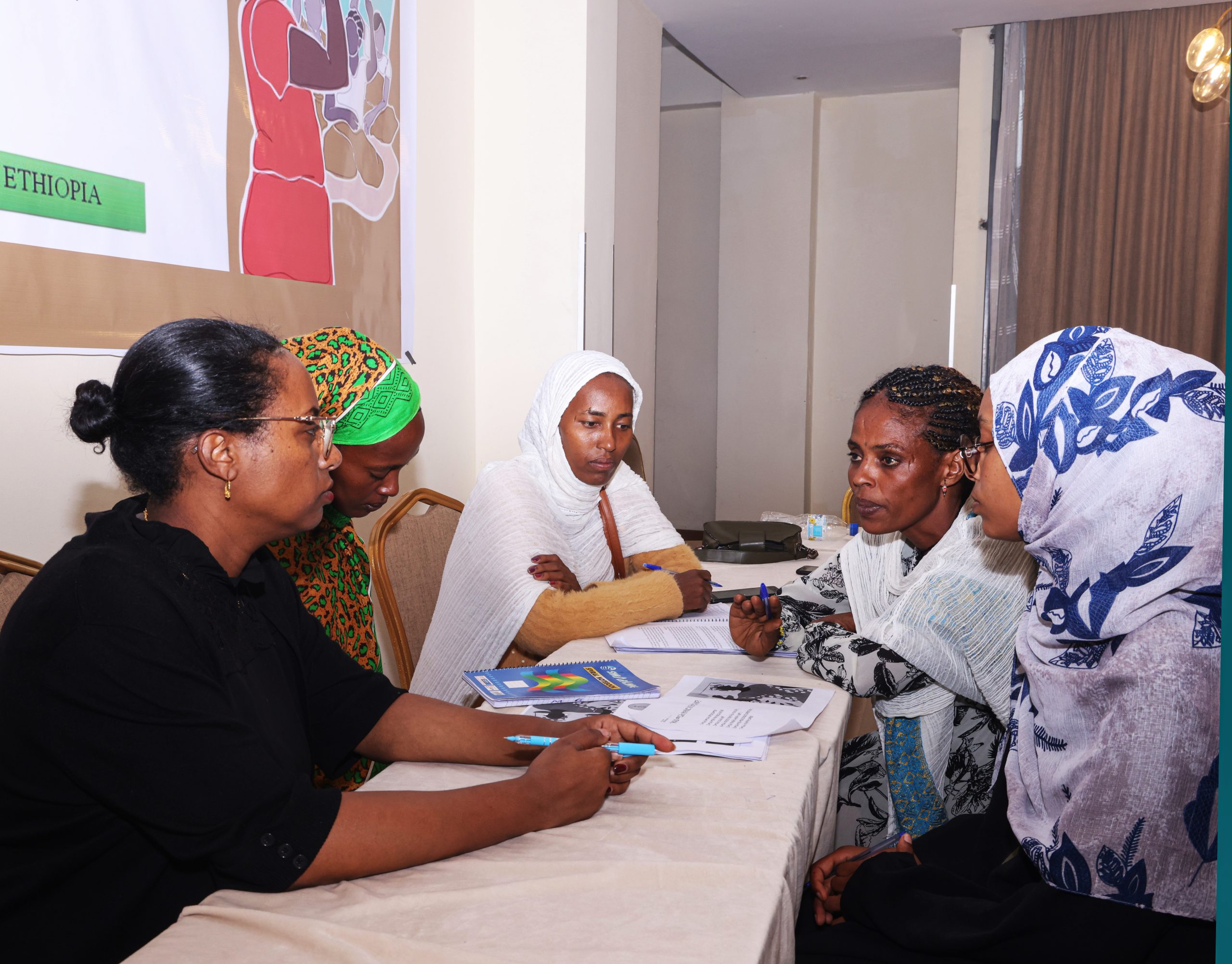
In November 2020, conflict erupted between the Tigrayan People’s Liberation Front (TPLF) and Ethiopia’s federal government, leading to two years of intense violence in the Tigray region. The fighting continued until November 2022, when a peace agreement was signed, officially ending hostilities between the two parties.
In the aftermath of the conflict, allegations of widespread abuse—including rape, gang rape, sexual slavery, and torture—have been made against all parties involved.
Sexual violence was used as a weapon of war, leaving survivors stigmatised, silenced, and unjustly blamed for the atrocities they suffered.
The Justice and Peace for Tigrayan Women (JPTW) Network was born from a collective vision: a future where Tigrayan survivors of sexual violence can reclaim their dignity and rebuild their lives. They are based in Mekelle and Shire and bring together 70 survivors of conflict-related sexual violence.
Members of JPTW have an interconnected mission: to provide access to care, create a safe and supportive community of survivors, and pursuit justice and peace.
They work to help its members heal and reintegrate into society with strength, leading lives of dignity and purpose.
Network-building workshop: Holistic care, safe spaces, and justice for CRSV Tigrayan survivors
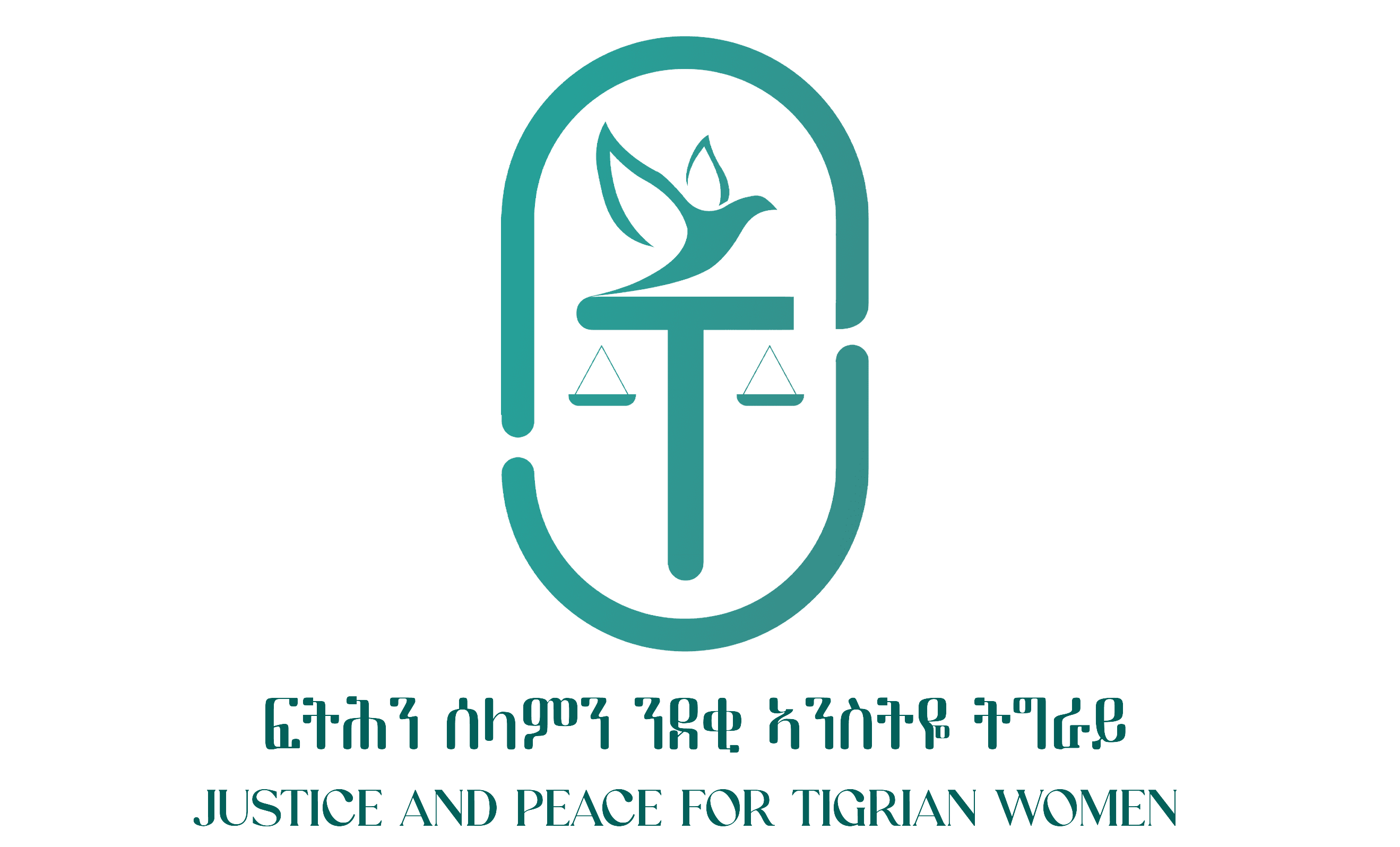
During their recent network-building workshop, JPTW solidified their identity, adopting a powerful symbol: a bird soaring over a scale of justice, representing their dual pursuit of peace and accountability. This emblem reflects their commitment to transforming pain into resilience and injustice into action.
The network also revisited its main objectives, which are fourfold:
- Facilitate access to medical, psychosocial and socio-economic support for victims and survivors of sexual violence.
- Develop their network into a safe space and protective community for survivors of sexual violence, which will encourage their self-efficacy and support their healing journeys to speak out.
- The network also aims to empower survivors and reinforce their capacities in combating stigma, identifying and referring survivors to care, and engaging with the government and other key stakeholders to obtain justice and peace.
- Engage in awareness-raising activities through public events and community awareness events to inform their communities about survivors’ rights and needs.
By setting clear objectives, members of JPWTN are fine-tuning the charters’ main goals and priorities and how resources can be mobilised in a survivor-centred manner to support prevention, mitigation and response to sexual violence in conflict.
Mutual learning and solidarity
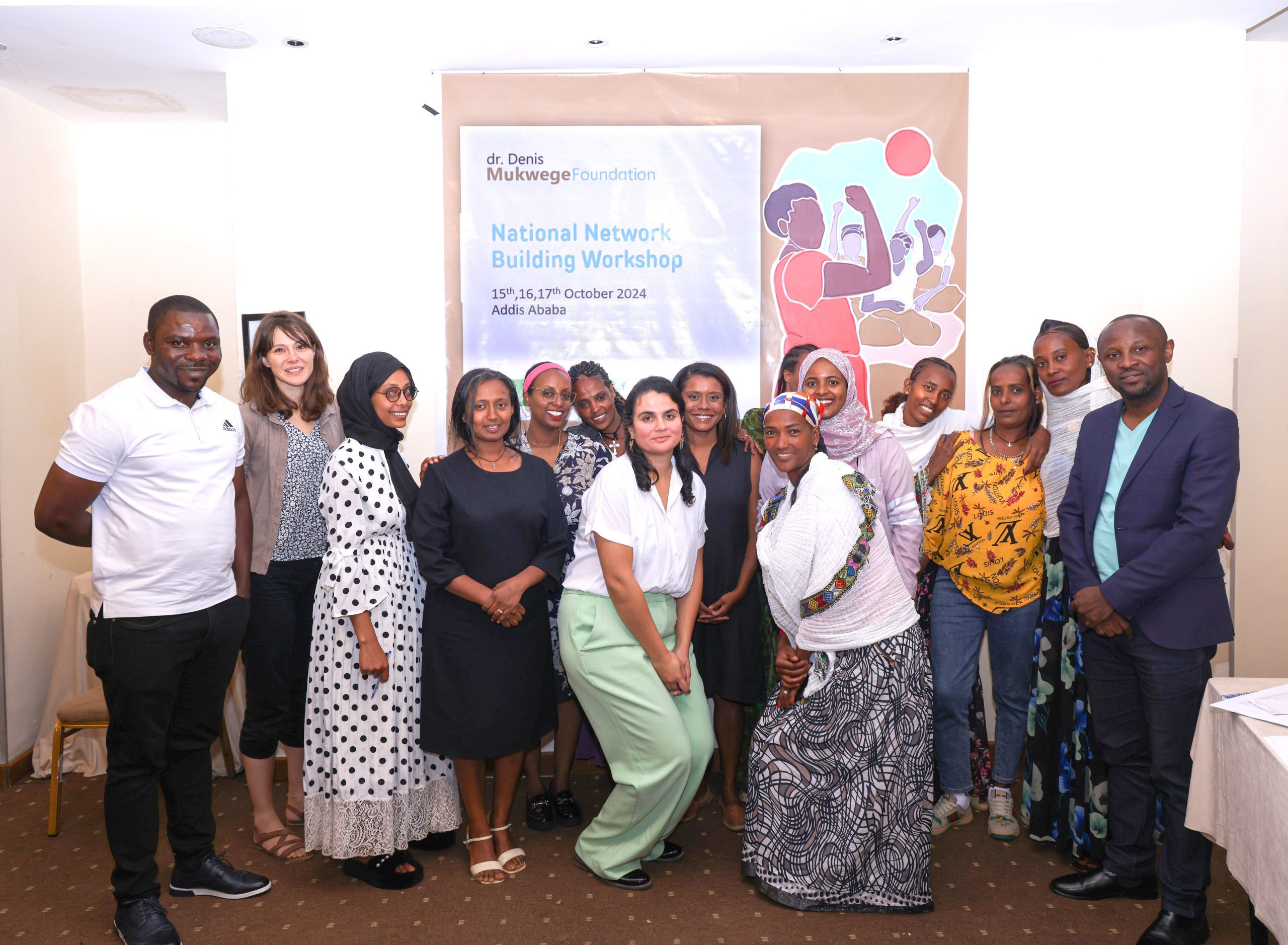
Leaders of the JPTW network came together with experts from the Mukwege Foundation and Panzi Hospital and Foundation as part of the pilot project “Sexual Violence Healing in Ethiopia Led by Doctors” (SHiELD) on the first day of the workshop.
This collaborative approach fostered mutual learning, strengthening their shared commitment to providing compassionate, survivor-centred care in Ethiopia.
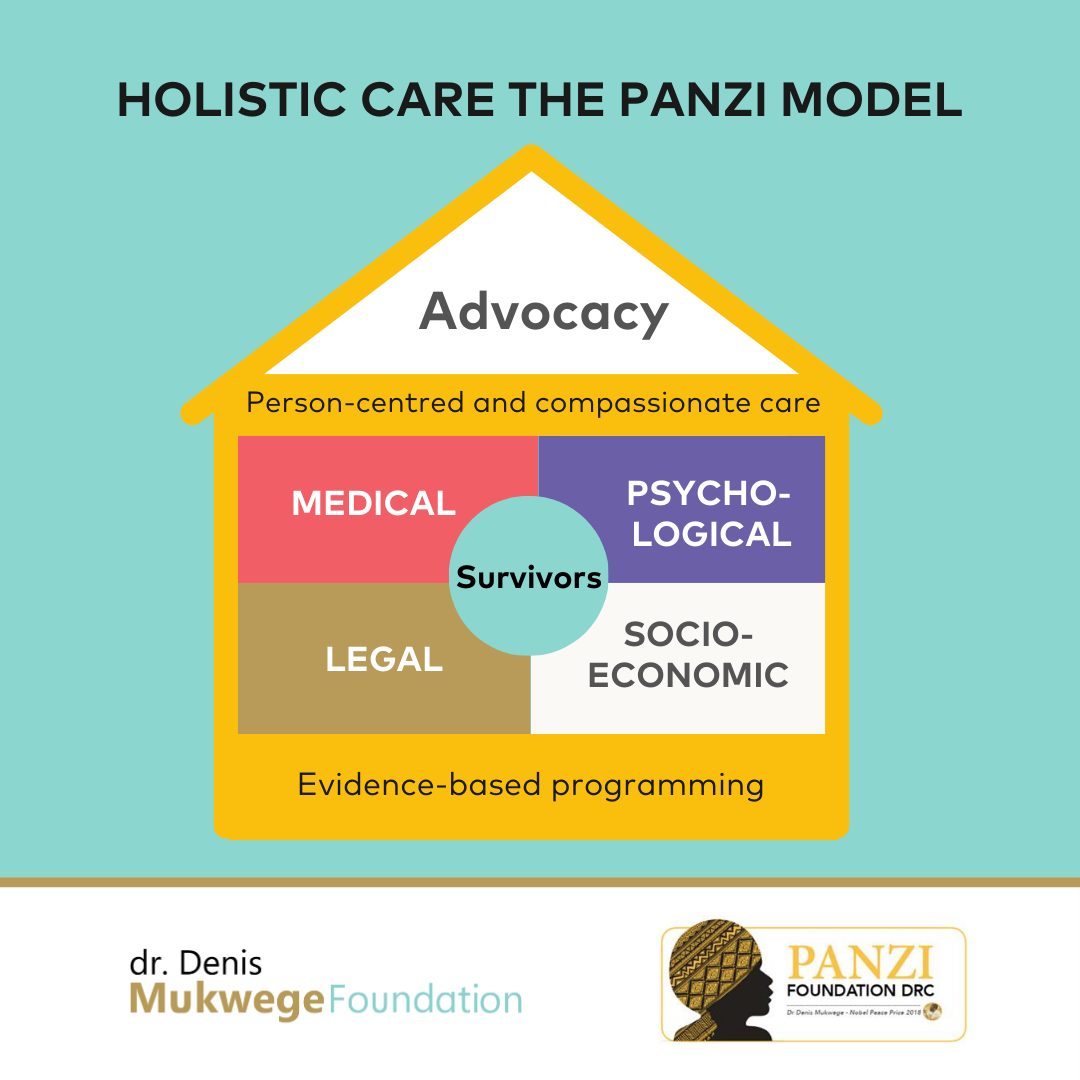
Supported by the Embassy of France to Ethiopia and the African Union, the SHIELD project is dedicated to enhancing the delivery of compassionate, holistic care for survivors of conflict-related sexual violence in Tigray and beyond.
Its mission is to equip medical and paramedical professionals with the skills needed to provide quality, survivor-centred care.
Through SHIELD, the Mukwege Foundation has initiated a knowledge exchange between Tigrayan professionals and experts from the Panzi One-Stop Centre.
This collaboration has allowed both sides to share valuable experiences, strengthening local capacities in Tigray.
During the recent workshop, the focus shifted to understanding survivors’ perspectives on accessing holistic care in Tigray.
Medical and psychosocial experts from the Panzi team provided insights into their successful survivor-centred model in the Democratic Republic of Congo, highlighting best practices and lessons learned from the Panzi model in shaping a more comprehensive care approach in Ethiopia.
Survivors also met with representatives from the Office of the High Commissioner for Human Rights in Ethiopia to discuss the country’s ongoing transitional justice efforts and future plans on the last day of the workshops.
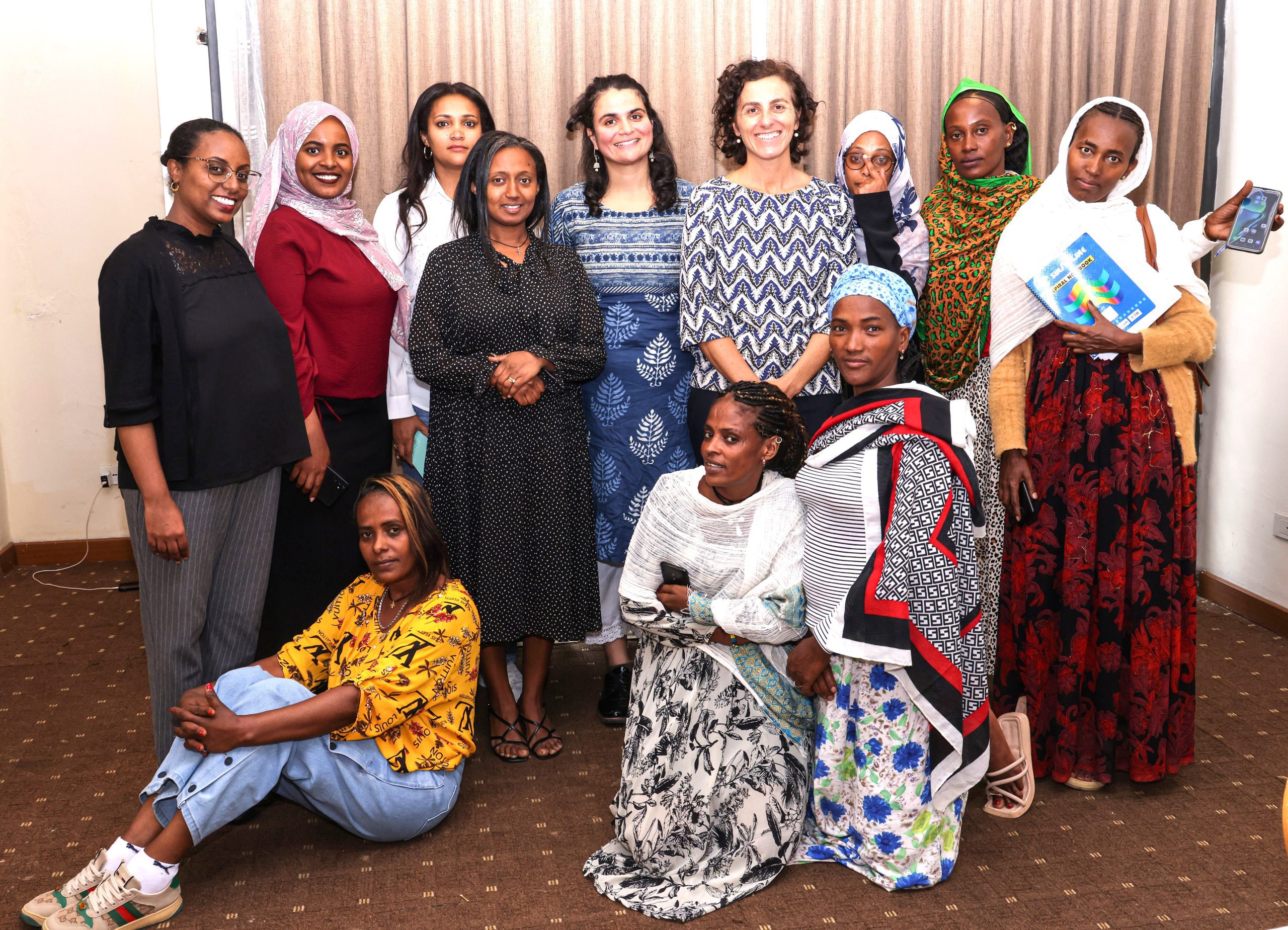
They explored ways survivor networks can play a greater role in this process, aligning with JPTW’s goal to strengthen their capacity in advocating for justice, peace, and redress.
Building a peaceful future
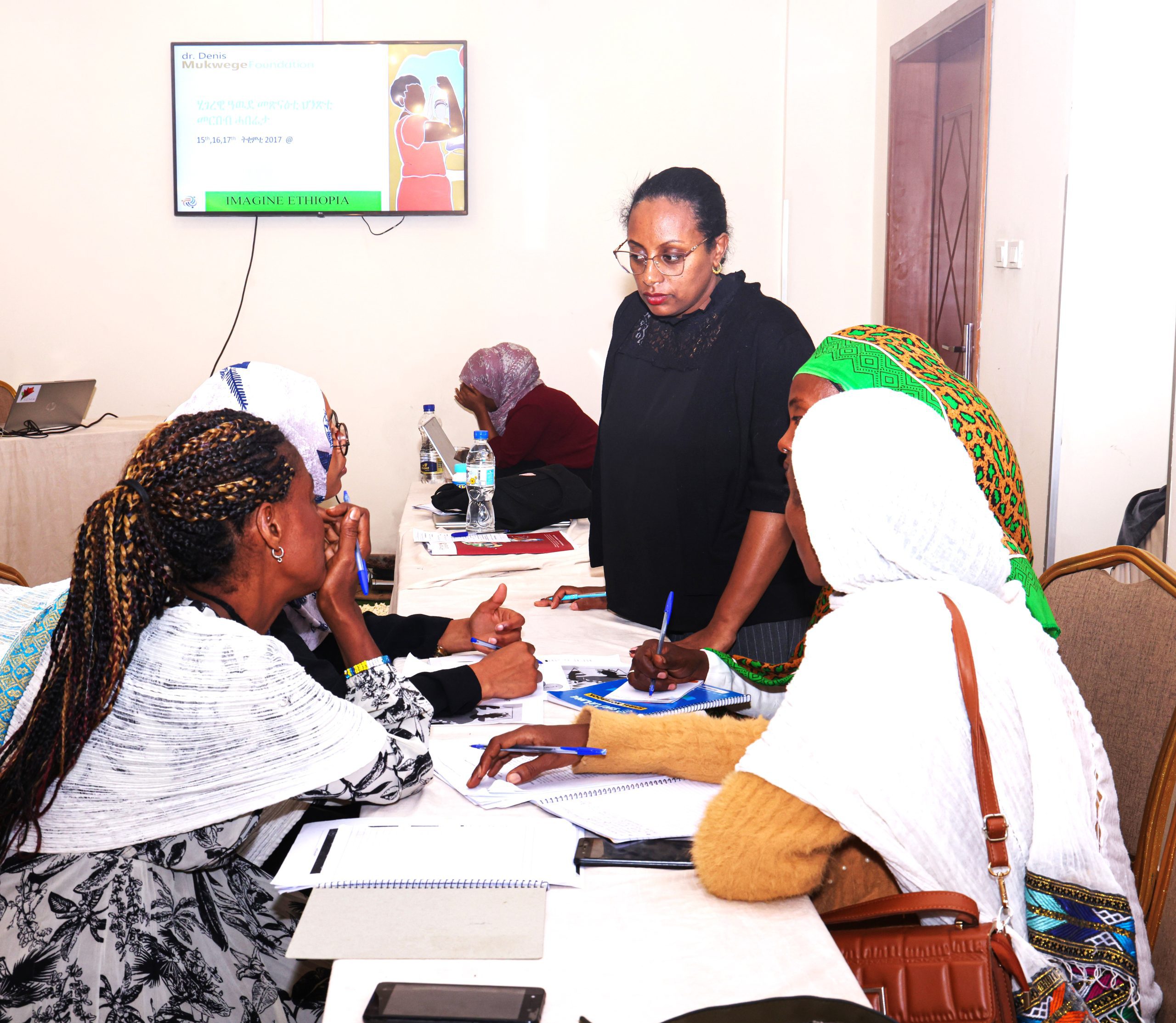
The Mukwege Foundation and Imagine Ethiopia remain steadfast in supporting JPTW in their immediate and long-term goals.
Moving forward, JPTW aims to expand its reach, identifying and supporting more survivors of conflict-related sexual violence. By providing access to survivor-centred holistic care, they seek to help survivors rebuild their lives and reintegrate into society.
On a global scale, JPTW would also hope to join SEMA, the Global Network of Survivors of Wartime Sexual Violence, in the future. Through this partnership, they aim to break the silence surrounding sexual violence and amplify the voices of survivors.
By transforming their pain into power, JPTW will continue to grow its capacity and extend support to even more victims and survivors, fostering a future of healing and hope.
Thank you
We extend our gratitude to the leaders of the JPTW network, our partner Imagine Ethiopia, the Panzi Hospital and Foundation DRC and the High Commissioner of Human Rights in Ethiopia for their collaboration. We also thank the French Embassy in Ethiopia and the International Center for Transitional Justice (ICTJ) for their crucial support to this work.
















